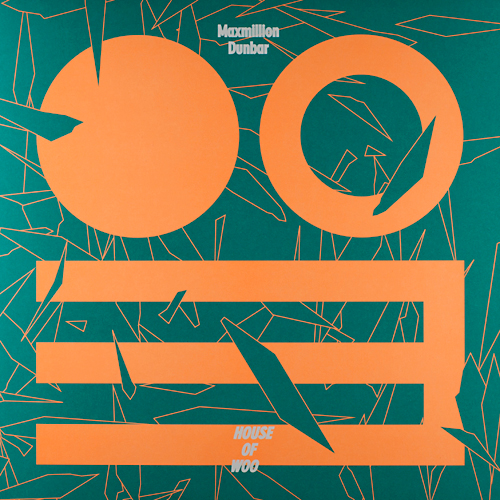“Slave To The Vibe,” the opening track to Andrew Dunbar Field-Pickering’s second LP House of Woo, is a mix of breakbeat, house, downtempo, IDM, ambient, and even (courtesy of a Legend-of-Zelda-ready panflute sample) new age. And if that one song packs such a stylistically varied punch, just imagine what the other twelve have in store for the curious listener.
Not to fear: this mélange of genres never makes the record seem overcrowded with ideas or lacking in focus. Nor does it necessarily push the album in unexplored sonic territory; I get the impression Dunbar wants to make this music as comfortable to the listener as it must have been to make. The cacophony of synth squelches that begins “Coins For The Canopy,” for instance, sounds positively giddy before giving way to a Donkey Kong jungle beat and a chiming melody that coyly takes its time settling into the track. Like much of the album, loops carry the day here; between the glassiest of electronics, the panniest of panflutes, and the plushest of pink noise, Dunbar has plenty of wiggle room to mix and match atmospheres and styles with the breathless eagerness you’d expect from someone who used to rap under the name Vulture Voltaire. Indeed, many moments on this album—like the monosyllabic vocal sample of “The Figurine (Nod Mix)” and the fluid syncopation of tracks like “Inca Tags” and “Loving The Drift”—hearken back to the artist’s early hip-hop work and ground the more strictly ambient passages (e.g. “For Mozy”) in a much appreciated streetwise danceability.
Still, I suspect the relative catchiness of House of Woo‘s many melodic twists and turns will ultimately attract the most listeners. This is a bouncy and largely breezy affair, a slightly funkier (and more house-indebted) take on the M-Plant brand of minimal acid techno, which actually sometimes works to this album’s detriment—parts are too pat and thus forgettable, and its second half occasionally drags where the first glides. But then Dunbar will slip in something like the almost impossibly smooth and sultry “Peeling An Orange In One Piece,” which makes come-hither passes at lounge and slow-mo downtempo alike with its trilling flute sample (the man likes his wind instruments, what can I say?) and swirling synth work, and we’re once again engaged listeners.
For producers like Dunbar, a big challenge seems to be maintaining a fair yet novel balance between dance music and home listening, combining the two when necessary but also appealing to, at times, distinctly different demographics. I suspect this ongoing struggle has at least a little to do with the success of artists like Burial and Andy Stott, whose haunted dubstep and syrupy techno (respectively) deftly straddle this stylistic divide between seeking to make your feet move and aiming for the undercurrents of your subconscious. Maxmillion Dunbar isn’t quite so masterful yet, but House of Woo suggests an artist who’s still coming into his own without being afraid to play chameleon at the DJ booth. There are many samples to be found here, but happily few presets. He proves to be a slave to nothing but his own musical whimsy, and for that he deserves praise.

